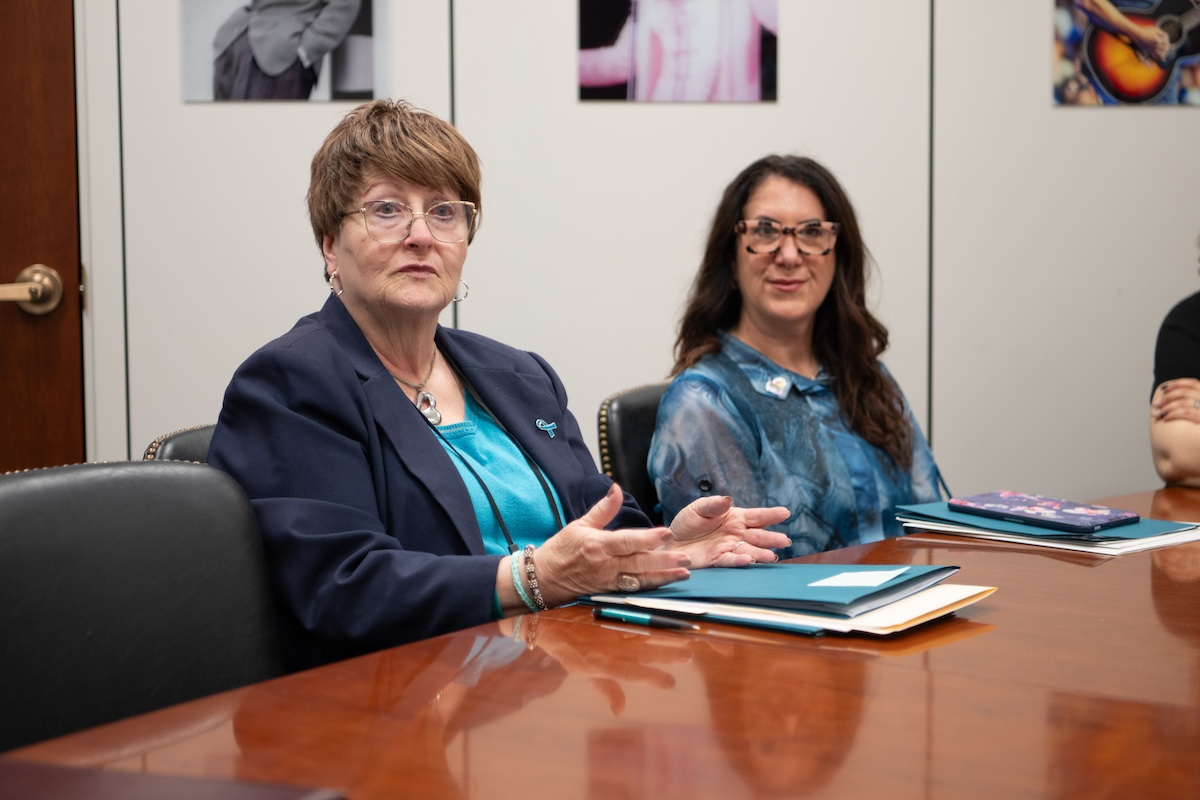February 16, 2021
President Joseph R. Biden, Jr.
The White House
1600 Pennsylvania Avenue, NW
Washington, DC 20500
Dear Mr. President:
On behalf of a broad spectrum of organizations, cancer centers, and other institutions that represent laboratory, translational, and clinical researchers; other health care professionals; millions of patients with cancer; and patient advocates, we are writing today to thank you for your extraordinary commitment to conquering cancer and to applaud your determined focus to end the COVID-19 pandemic.
Cancer is a collection of diseases that kills more than 600,000 Americans each year, making it the second leading cause of death in the U.S. There are also more than 17 million survivors of cancer in the U.S., many of whom are at a higher risk of dying from COVID-19. Therefore, we are asking for your assistance in ensuring that patients with active cancer and survivors of cancer are prioritized to receive a COVID-19 vaccine.
We fully support your COVID-19 vaccination plan that calls for broadening access and vaccinating as many Americans as rapidly as possible. However, we are compelled to underscore the urgency of prioritizing access to a COVID-19 vaccine for patients with active cancer and survivors of cancer.
There is mounting evidence that patients with cancer are at increased risk of severe illness and death if infected with the virus. In December 2020, an article published in the Journal of the American Medical Association presented data showing that patients with cancer who are diagnosed with COVID-19 are more likely to require hospitalization (47.46%) than persons without cancer who have been diagnosed with COVID-19 (24.26%) (1). Also, the AACR COVID-19 and Cancer Task Force recently published an article in the AACR journal Cancer Discovery that reviewed the available literature since the onset of the pandemic (28 peer-reviewed articles) on fatality rates of patients with cancer who developed COVID-19 (2); these data have shown that COVID-19 fatality rates for patients with cancer were double that of patients without cancer.
Additionally, as noted by the Cancer Leadership Council (3), a patient-centered forum of national advocacy organizations addressing public policies related to cancer, as well as other recent studies, certain survivors of cancer have a higher probability of infection and COVID-related death compared to the general population (1, 3–5). Further, the Council stressed that the risks are even greater for patients with active cancer.
Finally, we also know that many Americans are putting off regular doctor appointments that would lead to a cancer diagnosis, meaning that we are likely to see a higher number of patients diagnosed when their cancer is at a more advanced stage. Without the protection offered by a vaccine, these patients are not only at risk of being infected with COVID, but a COVID diagnosis could severely impact their treatment options available.
Patients with cancer who are in active treatment often receive frequent in-person clinical care, which has the potential to increase their risk of exposure to the virus. Furthermore, certain patients with cancer are vulnerable to infection because of their weakened immune status, which is attributable to their cancers and/or their treatments (6). Clearly, vaccinating patients with cancer who are in active treatment offers the best protection against the threat of contracting the virus.
On January 22, 2021, the Vaccination Advisory Committee of the National Comprehensive Cancer Network, an alliance of 30 leading U.S. cancer centers that publishes clinical practice guidelines in oncology, recommended that patients with active cancer as well as their caregivers and household contacts should all be prioritized for COVID-19 vaccination (7, 8).
At the January 27, 2021 meeting of the CDC Advisory Committee on Immunization Practices, it was reported that certain states in the U.S. are prioritizing patients with active cancer and survivors of cancer in a number of ways. As a result, we want to again emphasize the importance of ensuring that prioritization of vaccine supplies be given to high-risk populations that include patients with active cancer and survivors of cancer.
In closing, for the reasons stated above, we sincerely hope that you and your colleagues in the administration will stress to all State Public Health Departments that patients with active cancer and survivors of cancer must be provided priority access to a lifesaving COVID-19 vaccine.
Thank you again for your leadership. We stand ready to work with you and your administration on this critically important issue.
Ovarian Cancer Research Alliance joined 125 scientific organizations and cancer centers in signing this letter. View a full list of signers.


